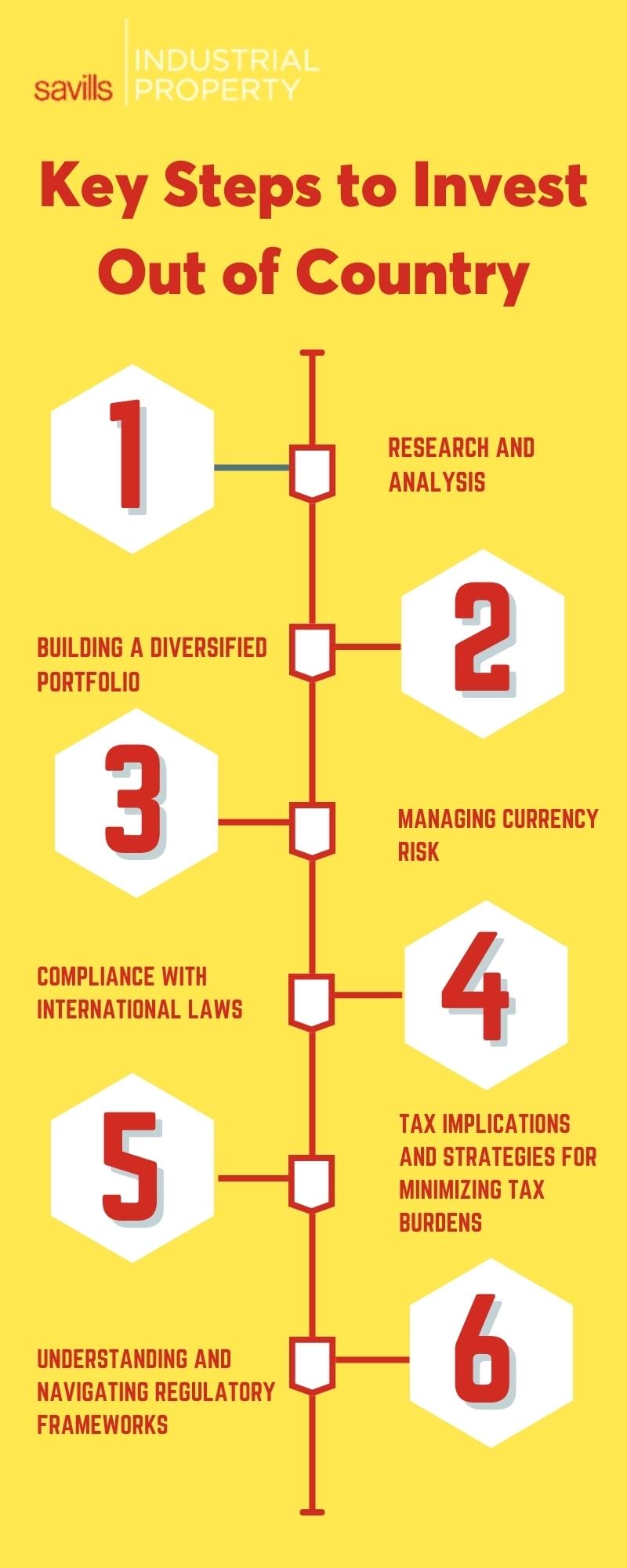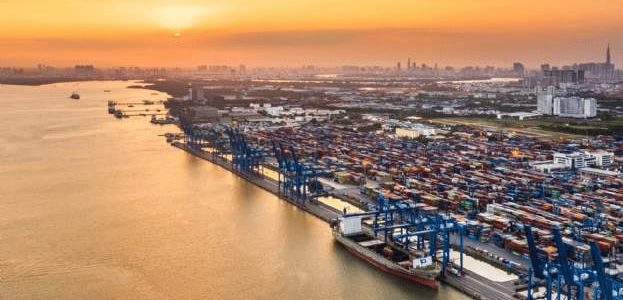In the ever-evolving landscape of global finance, international investing stands as a pivotal strategy for those seeking to diversify and maximize their portfolios. This guide is your gateway to understanding the significance of international investing and, more importantly, unlocking a world of opportunities beyond your home country. Join us as we delve into the intricacies, benefits, and strategies that can propel your investment journey across borders, opening doors to a broader spectrum of financial growth and stability. Explore the untapped potential and discover the keys to successful out-of-country investments
Understanding the Landscape
The global marketplace is a vast and interconnected network of economies, each offering a unique set of opportunities for investors. Understanding this landscape involves exploring diverse financial markets, ranging from established ones in developed nations to emerging markets with untapped potential. International investing opens doors to a myriad of investment possibilities, including stocks, bonds, real estate, and more.
Factors Influencing the Decision to Invest Outside The Country
The decision to venture into international investing is influenced by various factors. Economic conditions, geopolitical stability, and the prospect of higher returns are key drivers. Diversification, one of the primary motivations, helps mitigate risks by spreading investments across different markets. Additionally, currency considerations, political climates, and global trends play crucial roles in shaping the decision-making process.
Risks and Rewards Associated with International Investments
Like any investment strategy, international investing comes with its set of risks and rewards. Understanding and balancing these factors are essential for successful outcomes. Risks may include currency fluctuations, political instability, and regulatory changes, while rewards often manifest in the form of enhanced portfolio diversification, access to higher-growth markets, and potentially superior returns. Navigating this dynamic landscape requires a strategic approach and a keen awareness of the global economic environment.
Key Steps to Invest Out of Country

Research and Analysis
– Assessing Potential Markets: Conduct in-depth research on potential markets, considering economic indicators, political stability, and market trends. Evaluate factors like GDP growth, inflation rates, and fiscal policies to gauge the investment climate.
– Understanding Regulatory Environments: Gain a comprehensive understanding of the regulatory landscapes in target countries. This includes legal frameworks, tax policies, and foreign investment regulations. Assessing the ease of doing business is crucial for informed decision-making.
Building a Diversified Portfolio
– Asset Allocation Strategies: Develop sound asset allocation strategies based on investment goals, risk tolerance, and time horizon. Diversify across different asset classes and industries to spread risk and enhance portfolio resilience.
– Selecting Investment Vehicles: Choose appropriate investment vehicles based on the desired exposure. This may include stocks, bonds, mutual funds, real estate, or alternative investments. Each asset class contributes to the overall diversification strategy.

Managing Currency Risk
– Hedging Strategies: Implement effective hedging strategies to manage currency risk. Hedging involves using financial instruments to offset potential losses due to currency fluctuations. Derivatives, such as futures or options, can be employed for this purpose.
– Monitoring Exchange Rate Fluctuations: Stay vigilant about currency market dynamics. Monitor exchange rate fluctuations and geopolitical events that may impact currency values. Regularly assess the effectiveness of hedging strategies and adjust them as needed.
Legal and Regulatory Considerations
Compliance with International Laws
– Navigating International Legal Frameworks: Ensure strict compliance with international laws governing investments. This includes understanding trade agreements, investment treaties, and any legal obligations applicable to foreign investors in specific regions.
Tax Implications and Strategies for Minimizing Tax Burdens
– Understanding Tax Structures: Gain clarity on the tax implications associated with international investments. Recognize the tax structures in different countries, including corporate taxes, capital gains taxes, and withholding taxes. Develop strategies to minimize tax burdens while remaining fully compliant.
– Utilizing Tax Treaties: Leverage tax treaties between countries to optimize tax outcomes. These treaties often provide mechanisms to prevent double taxation, ensuring that income is not taxed in both the home country and the host country.
Understanding and Navigating Regulatory Frameworks
– Thorough Regulatory Due Diligence: Conduct thorough due diligence on the regulatory frameworks in each target country. This includes understanding business registration processes, licensing requirements, and any sector-specific regulations that may impact the investment.
– Engaging Local Legal Expertise: Collaborate with local legal experts who have in-depth knowledge of the regulatory landscape in each jurisdiction. Their insights can guide the investment strategy to align with local legal requirements.
Navigating legal and regulatory considerations is paramount for successful international investments. Adhering to international laws, optimizing tax structures, and understanding diverse regulatory frameworks contribute to a secure and compliant investment environment.

Benefits of Investing Out of Country
Diversification and Risk Management
– Mitigating Risk through Diversification: Investing outside one’s home country provides an opportunity for portfolio diversification. Diversifying across various markets and industries helps spread risk, reducing the impact of economic downturns in any single region.
– Enhanced Risk-Adjusted Returns: Diversification not only mitigates risk but can also enhance risk-adjusted returns. Exposure to different economic cycles and market conditions allows investors to capitalize on opportunities and navigate challenges more effectively.
Access to Emerging Markets and Unique Investment Opportunities
– Exploring Emerging Markets: International investments open doors to emerging markets with high growth potential. These markets often present unique investment opportunities that may not be available in more mature economies.
– Venturing into Niche Sectors: Different countries have varying industry strengths. Investing globally allows access to niche sectors and industries that might not be prevalent or well-established in the home country.
Potential for Higher Returns
– Capitalizing on Growth Opportunities: Emerging markets frequently offer higher growth rates compared to developed economies. Investing in these regions can potentially yield higher returns as these markets evolve and expand.
– Currency Exchange Opportunities: Fluctuations in currency exchange rates can create opportunities for additional returns. Strategic management of currency risk can contribute to overall investment performance.
Challenges and Risks of International Investing
Currency Fluctuations and Economic Instability
– Navigating Exchange Rate Volatility: Currency fluctuations can impact investment returns. Changes in exchange rates may result in gains or losses, adding a layer of complexity to international investments.
– Economic Instability in Host Countries: Economic instability in the host country can affect the overall investment environment. Factors such as inflation, recession, or financial crises may pose challenges to investors.
Political and Regulatory Uncertainties
– Understanding Political Risks: Political events, policy changes, and geopolitical tensions can introduce uncertainties. Investors need to navigate these complexities and assess the impact of political decisions on their investments.
– Navigating Regulatory Environments: Each country has its own set of regulations and legal frameworks. Adapting to diverse regulatory environments requires careful consideration to ensure compliance and avoid legal complications.
Cultural and Market-Specific Challenges
– Cultural Nuances and Business Practices: Cultural differences impact business practices and communication. Understanding and respecting cultural nuances is essential for successful international investments.
– Market-Specific Challenges: Each market has unique challenges related to consumer behavior, market dynamics, and competition. Local market insights are crucial for making informed investment decisions.

Explore Industrial Investment Opportunities with Savills Industrial
Savills Industrial offers personalized guidance to investors seeking industrial investment opportunities. Our experts understand the complexities of international investments and can tailor advice to align with your specific goals.
Benefit from comprehensive market insights and in-depth analyses provided by Savills Industrial. Our team keeps abreast of global market trends, ensuring you have the information needed to make informed investment decisions.
For personalized guidance on industrial investments and to explore opportunities in diverse markets, contact Savills Industrial. Our team is ready to assist you in navigating the complexities of international investing.
Visit our website for additional resources, 2023 market reports, and industry analyses to enhance your understanding of industrial investment landscapes.
Invest with confidence and explore industrial investment opportunities in Vietnam with the support of Savills Industrial.












